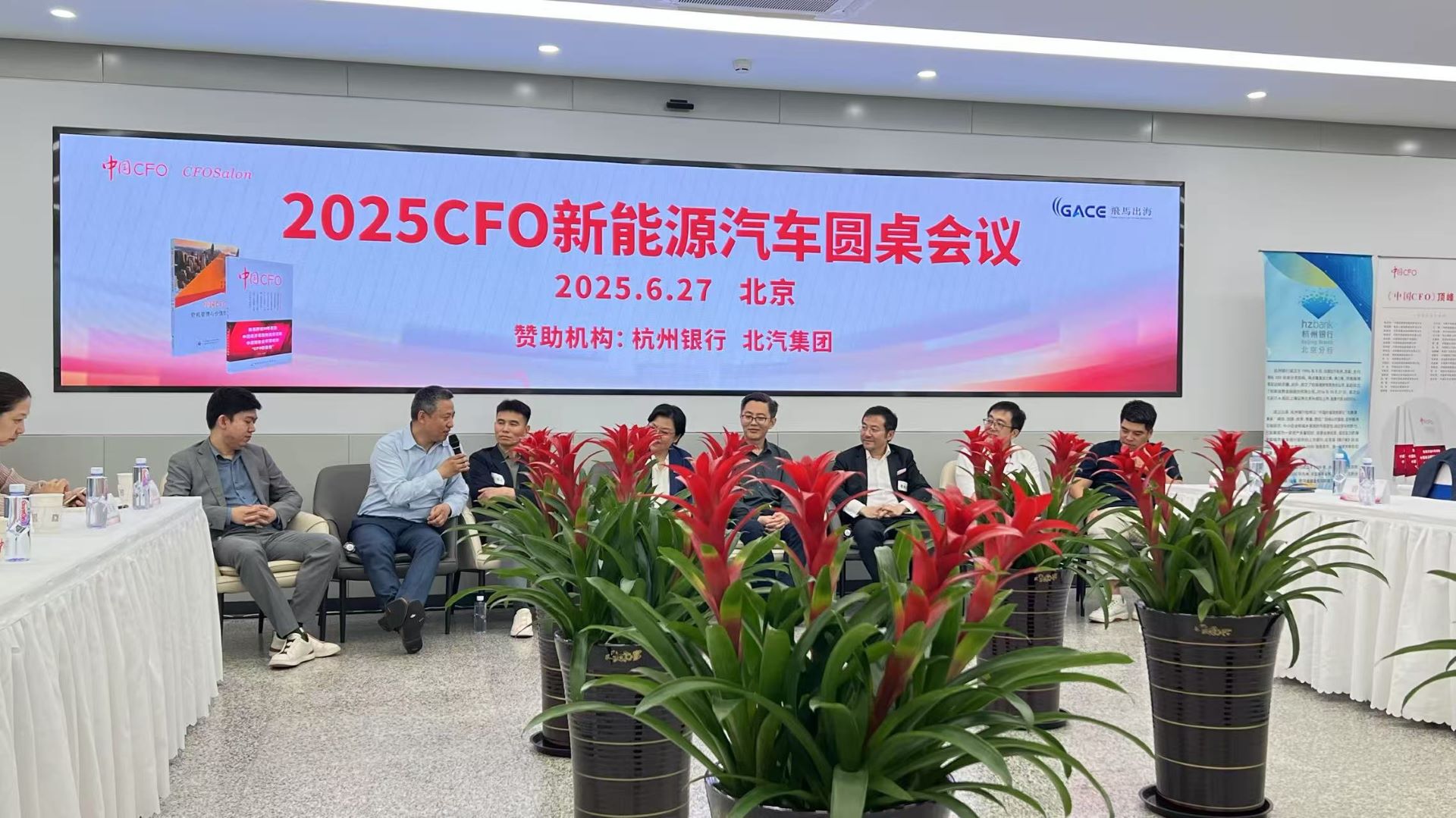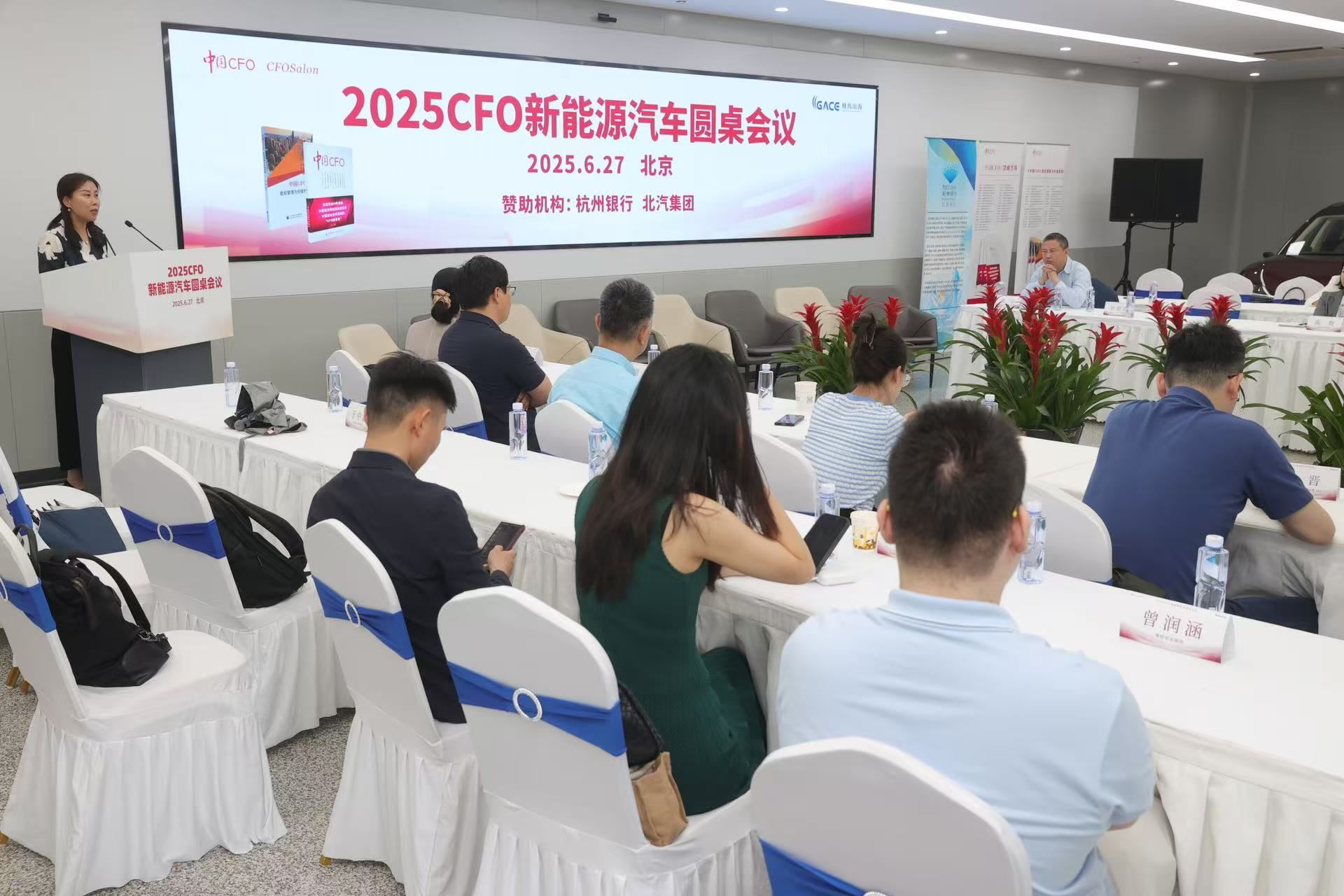
Highlighting the challenges and opportunities in China’s booming new energy vehicles (NEVs) sector, the CFO Salon, a prestigious gathering of financial officers, held a seminar on NEVs last month in Beijing, discussing the industry’s advantages as it goes global.
More than 30 CFOs, investors, and entrepreneurs from well-known Chinese enterprises attended the 2025 CFO New Energy Vehicle Salon in the mega production base of R9, a state-of-the-art smart NEV entity established by Huawei and BAIC Group.
After a tour of the BAIC New Energy R9 (Xiangjie) mega factory, the first session discussed the prospects of the going-global trend of the Chinese NEV industry. The seminar also delved into the impact of smart technology and advances in batteries for NEVs.
In 2024, China's automobile exports exceeded 6.4 million units, with over 2 million of them being NEVs, both ranking first globally. Meanwhile, Chinese automakers invested more than $3 billion overseas, with NEV projects serving as the main growth driver.
ALSO READ: China's NEV registrations hit record 5.62m in H1 2025
Several professionals at the seminar concluded that China's NEVs have significant technological and product advantages in the global market.
However, it is crucial to carefully select target markets, promote product differentiation, gradual localization, and industrial chain synergy based on the infrastructure and regulatory environment of different countries.

It is key to have a clear understanding of the power-charging infrastructure and regulatory requirements on autonomous driving before tapping into a particular national market. Meanwhile, it is time to upgrade from "hardware exports" to "ecosystem exports" to enhance the resilience of the value chain. Strategically, the overseas expansion of NEVs demands a three-pronged approach driven by "technology + localization + finance."
Subsequently, during the second session of the group discussion, CFOs from well-known Chinese enterprises exchanged views on the core bottlenecks of the NEV industry.
From a technological perspective, advances in batteries and ultra-fast charging technologies have largely alleviated range anxiety. However, there is still a need to develop solid-state battery technologies.
Regarding vehicle intelligence, simulation models have become an effective solution for cost and efficiency improvements on large-scale autonomous driving models.
ALSO READ: CFO salon hosted featuring media management expert Zhou Jingdong
For different autonomous driving solutions based on LiDAR and cameras, the former is mainly designed to address one-in-a-thousand or one-in-ten-thousand long-tail risks, while the latter can generally meet over 99 percent of scenario requirements.
Automakers need to comprehensively consider performance and cost requirements and formulate technology and product solutions based on safety demand of different consumers. For example, Huawei's ADS offers a data-fusion solution.
During the luncheon, Guo Rui, Head of the Dept of Finance, BAIC Group, shared her thoughts and experiences on the overseas expansion of new energy vehicles. She introduced the development history and achievements of BAIC Group's self-owned and joint-venture brands.
Expounding on the BAIC's development approach of building an ecological enabling system with its internationalization strategy as the guide, she highlighted the proactive exploration of Chinese automakers in the process of full-scale internationalization.
ALSO READ: Report: China's car trade-in subsidies drive NEV surge
The development of the Chinse NEV industry also demands effective financial services. Hangzhou Bank, as an emerging new player in serving the Chinese NEV companies, shared its experiences in empowering the Chinese plyers in NEVs.
Chen Shuo, Head of Dept of Science and Technology Innovation Finance, Bank of Hangzhou Beijing Branch, said that Bank of Hangzhou has taken the NEV industry as a key driving force for China's economic development and financial services.
Having providing more than 100 billion yuan in loans, the bank delivers comprehensive financial services to companies across the entire industrial chain of the new energy vehicle industry for their domestic and international development.
READ MORE: Nation powers ahead with new energy vehicles
One of the highlights of the seminar was the presentation of Chen Guohua, chairman of the World Chemical Engineering Council and chair of the Department of Energy and Environment at the Hong Kong University of Science and Technology.
He shared the latest trends in the development of power battery technologies and products, particularly the huge potential of lithium-sulfur batteries in improving energy density and safety.
On that front, Chinese research institutions and companies can join hands in developing key technologies.


